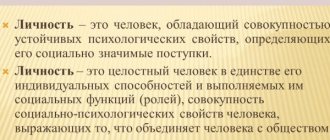What is childhood giftedness?
The expression “gifted children” is used very widely. If a child shows unusual success in learning or creative activities, significantly outperforming his peers, he may be called gifted. This definition is most widely accepted in American psychology and pedagogy, and is now becoming widespread among us.
There are reasons for this, in particular, in relation to the mental manifestations of children. If a child, other things being equal, has an unusually rapid rate of mental development, as well as clear achievements in a particular activity, it is right to recognize him as extraordinary. And therefore it needs an appropriate approach. But can we consider that such a child already has sufficient prerequisites for the further growth of his special capabilities, i.e. in order to become a gifted adult over time? Apparently, this cannot be said for many such children. In a narrower and stricter sense, the concept of “giftedness” in relation to children should have been applied only to those cases where the outstanding properties of the child are presented as a real guarantee of his future capabilities.
Signs
Signs of giftedness are features that manifest themselves in real activities, which receive a characterological assessment. A child’s genius includes the categories “I want” and “I can.”
The criteria assume two behavioral facets: instrumental and motivational. The instrumental category presupposes methods of activity, and the motivational category presupposes the child’s attitude to reality.
The instrumental category includes the following features:
- Quick mastery of skills and their successful application.
- Setting new goals based on comprehensive mastery of the subject. It forms a view of the situation through a new prism, and also contributes to the production of new ideas.
- Formation of an individual style of activity, expressed in a tendency to do everything in one’s own way.
- The ability to isolate an essential detail from many other subject concepts.
- Making an easy transition from specific concepts to general categories.
- The ability to reveal the simple in the complex and vice versa.
The learning of a child with developed intelligence is characterized by speed and easy assimilation of new material. The process may also be slow.
The behavior of a genius child is different:
- An increased level of sensitivity to certain phenomena of reality.
- The need to learn new things.
- Rejection of standard forms of thinking.
- Strong passion for any subject.
- Self-criticism.
- Constant self-improvement.
The behavior of a gifted child does not meet all of the above criteria. The presence of at least one characteristic should be a reason for the attention of a specialist.
Types of giftedness
Children who are prone to high achievement may not demonstrate high achievement immediately, but have the potential for it in any of the following areas (in one or a combination): general intellectual ability, specific academic ability, creative or productive thinking, leadership ability, artistic and performing psychomotor abilities. In-depth research in subsequent years led to the fact that already recognized types of giftedness began to be considered differentiated. This manifested itself in the emergence of new concepts of intellectual and creative talent. One of the most widely recognized is Howard Gardner's theory of multiple intelligences. A comparison of the types of intelligence according to Gardner and the known types of giftedness shows that they almost coincide. Artistic talent. This type of giftedness is supported and developed in special schools, clubs, and studios. It implies high achievements in the field of artistic creativity and performing skills in music, painting, sculpture, and acting abilities. One of the major challenges is to ensure that these abilities are recognized and respected in mainstream schools. These children devote a lot of time energy to exercise, achieving greatness in their field. They have few opportunities for successful studies; they often need individual programs in school subjects and understanding from teachers and peers. General intellectual and academic talent. Children with general intellectual giftedness quickly master fundamental concepts and easily remember and retain information. Their highly developed information processing abilities allow them to excel in many areas of knowledge. Academic talent has a somewhat different character, which manifests itself in the success of learning individual academic subjects and is more private. These children can show high results in ease, depth, speed of progress - in mathematics or a foreign language, physics or biology, and sometimes have poor performance in other subjects that are not so easy for them. The pronounced selectivity of aspirations in a relatively narrow area creates its own problems in school and family. Parents and teachers are unhappy that the child does not study equally well in all subjects, refuse to recognize his giftedness and do not try to find opportunities to support and develop special talents. Creative talent. Disputes are still ongoing about the very need to distinguish this type of giftedness. The expediency of identifying creative talent as a separate type is determined by the fact that standard curricula and the educational process provide many opportunities for its manifestation and development. Research shows that children with a creative orientation often have a number of behavioral characteristics that cause not only positive emotions in the people around them:
- lack of attention to conventions and authorities;
- greater independence in judgment;
- subtle sense of humor;
- lack of attention to order and “proper” organization of work;
- bright temperament.
Social talent (“social intelligence”, “organizational abilities”). One definition of social giftedness is that it is an exceptional ability to form mature, meaningful relationships with others. This essentially holistic definition did not last long, because the complex nature of this ability is obvious. There are such structural elements of social giftedness as social perception, prosocial behavior, etc. Social talent is a prerequisite for high success in several areas. It presupposes the ability to understand, love, empathize, and get along with others. R. Sternberg, a psychologist from Ilya University, discusses “practical giftedness,” which is so harshly recognized by the school that it is not considered as giftedness at all. R. Sternberg calls the key feature of practical talent the knowledge of one’s weaknesses and strengths and the ability to use this knowledge. It is obvious that this type of giftedness has common components with social (leadership) giftedness, and perhaps includes it. Highlighting the many types of giftedness serves the important purpose of drawing attention to a broader range of abilities that should receive recognition and opportunities for development.
Indigo children
Now there is a special type of giftedness - indigo children. However, this group of children is not recognized by any science. The term exists on its own, but has no clear definitions. It was first introduced by Nancy Ann Tapp, who argued that indigos were those children who had superpowers.
Modern scientists do not identify any criteria by which it would be possible to determine that a child belongs to this group, but there are still some conditional differences:
- Children often withdraw into themselves and have poor communication skills.
- They are individualists, completely deny the presence of any authorities, and refuse to obey anyone.
- They are distinguished from other children by their high level of intelligence and creative potential.
- They show interest in sciences that have no connection with each other.
- They have a lot of energy and almost never sit still.
- They are prone to depression; their mood often changes without obvious reasons.
- They are difficult to educate; parents find it difficult to cope even with a small child.
- Children have very well developed intuition; they almost always feel the approach of danger.
- They are good at digital technologies and excel at programming.
This type of giftedness manifests itself in children of primary school age and even earlier.
Forms of manifestation of children's talent
Giftedness that manifests itself clearly and clearly in a child’s activities is called overt . Veiled, disguised - called hidden or latent giftedness. There is another, very similar gradation - actual and potential giftedness. Manifested, obvious talent, noticed by psychologists, teachers, and parents, is called actual. Children who demonstrate actual giftedness are often called not gifted, but talented children. And, on the contrary, giftedness, which represents only certain mental capabilities (potential) for high achievements, but cannot be realized at the moment in activity due to their functional insufficiency, is called potential. The facts of the existence of actual and potential, obvious and hidden, early and late giftedness emphasize the complexity and importance of the problem. What signs, personality traits, character traits, characteristics of behavior and activity can indicate to an adult that a child may become an outstanding scientist, artist, or leader in the future? The answer to this complex question cannot be simple. Scientists have already discovered a number of patterns that make it possible to predict a child’s future, but there is still a long way to go to an algorithm for constructing reliable, well-founded forecasts. World pedagogical experience shows that often faith in the capabilities of a student, multiplied by the skills of parents and teachers, is capable of creating pedagogical miracles. In life, it often turns out that what is important is not even what nature has given to a person, but what he himself has been able to do with the gift that he has. This problem is related to another, no less important. The mental potential of a person is not static, it exists only in dynamics and is constantly changing. Therefore, many scientists devoted their research to studying human productivity at various periods of his life.
If you are the parent of a gifted child
The problems of different families are different from each other.
When trying to avoid this, on the contrary, deprive the child of attention, make him consider himself unnecessary and feel insecure, and this buries any talents in the ground. When there is more than one child in a family, there is a high probability that the rest will feel unnecessary
Finding a balance when raising a genius is very difficult, but the main thing is to remember that any child is special for you, you need to believe in any child. He needs to be loved sincerely and with all his soul, helped in everything and instilled in them respect for themselves and others.
Thomas Alva Edison is an American inventor and entrepreneur whose name is on everyone’s lips. But not everyone knows the story from his childhood. Edison's mother is truly a hero. One day she told her son that he was a genius, and his school, through a letter, asked him to teach him on his own because the teachers were not capable of completing this difficult task. Many years later, already a famous and successful person, Thomas found this letter in the family archive and learned that in fact his mother was not informed about his son’s giftedness, but about his son’s mental retardation.
Are you familiar with the name of the Austrian psychologist and physician Sigmund Freud? I'm sure so. His mother was young and naive when she gave birth to her first son.
informed the mother in labor, referring to the birth pathology. Having misinterpreted the message and deciding that her son was lucky, she firmly decided that she would raise a genius
Her mistake was depriving her subsequent seven children of attention and support, but the “golden Ziga” eventually became a successful and world-famous person who revolutionized psychological science
Age limits of giftedness
Many famous scientists, musicians, artists and even writers showed their outstanding abilities at an early age. Everyone knows the brilliant creative achievements of little W.A. Mozart, the outstanding successes in childhood of K. Bryullov, F. Holton, I.I. Mechnikov, K. Gauss, N. Wiener, G. Leibniz, V. Hugo, F. Schubert, M. Mussorgsky, and this list can be continued for a long time. It's no secret that gifted children often become outstanding adults. It is no less often the case the other way around: people who did not express themselves in childhood achieved outstanding results later, in adulthood. Often, outstanding mental potential, as evidenced by the biographies of many famous people, remained unnoticed by others for a long time. For example, biographers of Carl Linnaeus, the great Swedish botanist, note that in childhood his development was slow, but he began to gain fame at the age of 24. The famous Russian writer I.A. Krylov began his literary career relatively late. Among the students of the Tsarskoye Selo Lyceum, A. Pushkin, who was fond of poetry, was not considered the first; A. Illichevsky successfully challenged the “palm of championship”. In childhood, many famous scientists and artists did not stand out among their peers in any way. Naturally, in each such case, the reasons why giftedness went unnoticed are different. The potential may not have manifested itself until a certain time, or perhaps parents and teachers did not pay attention to the subtle movements of the child’s soul, they did not have enough knowledge for this, or their intuition worked. Or maybe, on the contrary, due to a lack of understanding, they did not notice outstanding capabilities in the child and even considered manifestations of creativity and intellectual initiative as negative qualities, and considered completely different ones to be the most valuable. We often encounter parents, school teachers, and university professors who value diligence, obedience, and accuracy above initiative, originality, courage, and independence of action and judgment. A kind of confirmation of this idea was found by American scientists who studied the biographies of 400 outstanding people. The study found that 60% of them had serious problems during their schooling. The results of a long-term study of the development of the same individuals and the corresponding test “measurements” give some idea of a certain instability and age-related variability of intelligence. In the light of such information, it is hardly possible to proceed from the idea of the level of intelligence as a strictly defined characteristic that is given for life.
Conclusion Thus, a child’s giftedness means a higher receptivity to learning and more pronounced creative manifestations than his peers, all other things being equal. The concept of “giftedness” comes from the words “gift” and means particularly favorable internal prerequisites for development. For a long time, very little work was done in our country in our country for a long time in our country. In accordance with the prevailing ideology, it was believed that particularly capable children should not be singled out, that everyone was equal, and that any desired qualities could be “formed” in every child. The concepts of “inclinations” and “giftedness” were seen as something idealistic and harmful. Only in recent years has the problem of differences between children in giftedness “come out of the shadows” and is arousing great interest. The ability to think and create is the greatest natural gift received by man. There are those who are more gifted, there are those who are less gifted, but everyone is marked with this gift. Therefore, when speaking about children's giftedness, experts usually consider an exceptional category of the child population - gifted children and the intellectual and creative potential of each child. But no one knows exactly where the border between a gifted and a non-gifted child lies. It is even more difficult to determine who in the future will reach the heights of genius and who will have a more modest role. One thing is certain: the intellectually creative potential of both gifted children and those who do not belong to this category needs special development.
Source: Scientific and theoretical conference “Problems of giftedness of students”: materials of the final control of knowledge of students of basic courses for history teachers. – Vitebsk: UE “VOG IPK i PRR i SO”, 2008.
Fast development
What does the concept of giftedness include at an early age? A gifted child first appears between three and five years of age. This is the time when the formation of his personality takes place. The baby begins to realize his abilities and talents, realizing that he is doing something very well. The child, comparing himself with his peers, begins to realize that he is different from them.
A clear sign of giftedness is progressive development
If a child at 3-4 years old can already read syllables, then you should pay special attention to him. After all, this child has his own rhythm of life, and soon he will no longer be interested in communicating with his peers
He will reach out to older children or adults. With an ever-increasing pace of development, we can talk about genius.










